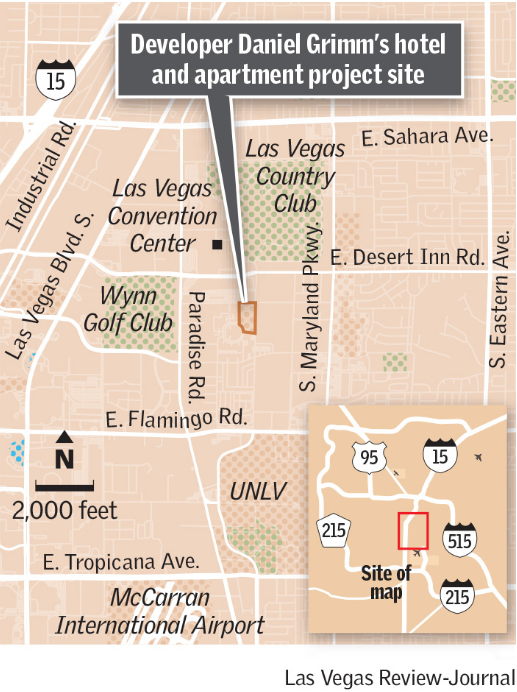Local Housing Policy: A Libertarian Goes for a Seat on Charlotte's City Council
They say all politics is local. And all local politics is about land use and housing. Local pols are up close and personal with their constituents. For citizens, it’s all about who their neighbors are, traffic, and schools--the day-to-day bump and grind of living. Most stay home, watch ESPN or the Kardashians, and don’t give a damn. They couldn’t find city hall with a GPS. However, the loud-mouths who think they’re smarter than everyone else and always think their ox is being gored, show up each and every meeting.
The truth is, city government’s respond, as Vanessa Brown Calder writes in a new Cato Institute Policy Analysis,
Local zoning and land-use regulations have increased substantially over the decades. These constraints on land development within cities and suburbs aim to achieve various safety, environmental, and aesthetic goals. But the regulations have also tended to reduce the supply of housing, including multifamily and low-income housing. With reduced supply, many U.S. cities suffer from housing affordability problems.
This is especially a problem on the East coast Ms. Calder explains, after being non-existent in the 20th century. Los Angeles started the whole thing in 1908 and local land use has grown exponentially since. Calder notes,
Zoning spread quickly. By 1926, 68 additional cities had adopted it. Two years later, the Supreme Court issued a ruling supporting zoning as an expression of police power. Perhaps encouraged by the ruling, another 1,246 municipalities adopted zoning in the 10 years between 1926 and 1936.
Zoning is supposed to control traffic, protect home values, protect the tax base, provide affordable housing options, protect the environment and anything else politicians can promise. Of course, achieving all of these goals all at once is impossible. Ms. Calder explains, “Unfortunately, many of zoning’s stated objectives conflict with each other.”
The effect of all this is to give planning commissioners and city councilman the opportunity to help developers bend the rules to make projects economically viable. Thus, local politicians receive a steady source of donations from real estate developers.
If you’re a principled libertarian, it’s tougher to take advantage. Jeff Scott, a friend and libertarian running for Charlotte (North Carolina) City Council, District 6, said “As a third-party candidate, I can work best with the two parties and hold firm on the ground of preserving personal expression and freedom, and advancing sound financial policies, free of cronyism and favoritism.”
When asked by the Charlotte Observer his view of government’s role in affordable housing Scott replied, “The city should not be involved in development subsidies except where they must deal with housing emergencies, for people in a chronically difficult situations, or retaining public safety workers. … Housing for lower income families should be funded through private capital…”
The Charlotte Arts and Sciences Council asked the political neophyte about his vision for the city,
As an economist, I understand the pressures and poor planning that lead to turmoil in real estate and subsequent frustrations from venue operators. I would work to eliminate the kinds of economic distortions that lead to very uneconomic dislocations. The idea that a somewhat historic 40-year old blues bar that still serves $5 beers could get razed in this town without the blink of an eye shocks even me. My sense of social harmony can be disarrayed too, so I am empathetic to those who view these instances of loss through the prism of gentrification. We have lost things that are irreplaceable.
While Scott’s thoughtful free-market answers play well to the internet crowd, most locals want government to rule real estate with an iron fist, with their input, of course. Most people don’t want to live near poor people. They want their house to rise onward and upward in value, so they can become rich while they sleep. The belief is, poor neighbors decrease home values.
“Thus, land-use zoning is contributing to a sort of geographical segregation by income,” writes Cato’s Calder. “Many studies find that zoning is a regressive policy because the costs fall disproportionately on low-income households.”
The federal government distorts local housing markets by funding rental subsidies, which were $200 billion in 2015. It’s no surprise Calder found,
Regardless of whether federal funding improves affordability, federal money does encourage poor local policy decisions. After ranking the states based on the burden of their land-use regulations, I find that federal housing subsidies are concentrated in the most restrictively regulated states.
The Attom Home Affordability Index, which takes into account local wages, home values, property taxes, and historical affordability, finds Charlotte among the 20 cities with the fastest rate of declining affordability.
This means affordable housing will be a political football at Charlotte City Hall. Good Luck Mr. Scott. Be careful what you wish for.






